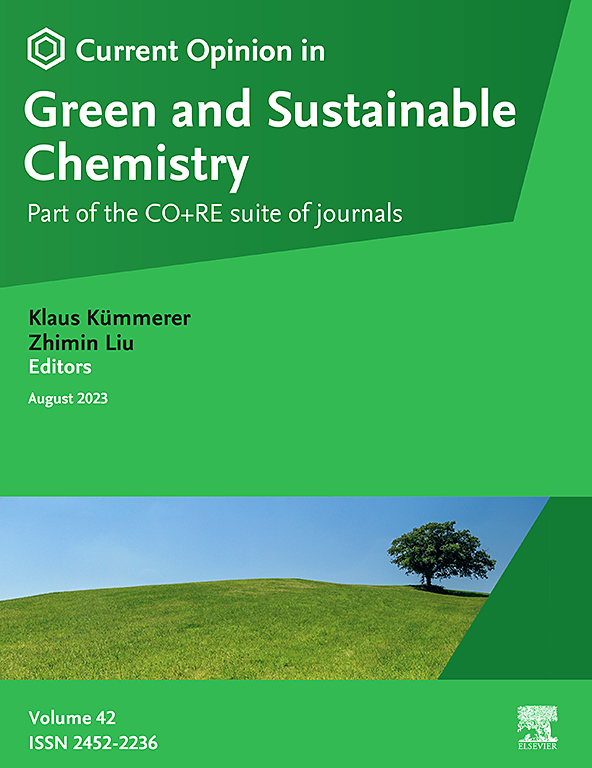十字路口上的可持续发展:驾驭生态人文主义与生态现代主义
IF 9.3
2区 化学
Q1 CHEMISTRY, MULTIDISCIPLINARY
Current Opinion in Green and Sustainable Chemistry
Pub Date : 2025-03-15
DOI:10.1016/j.cogsc.2025.101018
引用次数: 0
摘要
本文考察了生态人文主义和生态现代主义这两个可持续发展框架在理论和实践上的紧张关系。在生态人文主义中,人类被认为是接近自然的,并促进道德管理和以社区为基础的可持续发展努力。相比之下,生态现代主义强调的是能够在维持经济增长的同时解决环境问题的技术进步。讨论了这种对立的意识形态所产生的协同作用和矛盾。可再生能源项目和精准农业等举措显示了技术发展与社会公平目标之间的协同效应。然而,当技术解决方案绕过伦理考虑时,就会出现矛盾,比如在没有征求社区意见的大型项目中。审查还考虑了如何整合这些框架,其中优先事项不同,技术乐观主义可能掩盖了必要的行为改变。它展示了跨学科研究、全纳教育和政策制定如何缩小生态人文主义和生态现代主义之间的差距。本文认为,以人为本的伦理与技术创新相结合是实现可持续发展的一条可行之路。通过拥抱这两种意识形态,未来的可持续发展努力可以更加包容、公正和有效地解决全球环境和社会问题。本文章由计算机程序翻译,如有差异,请以英文原文为准。

Sustainable development at the crossroads: Navigating eco-humanism and eco-modernism
This review examines theoretical and practical tensions between eco-humanism and eco-modernism, two frameworks for sustainable development. In eco-humanism, humans are considered close to nature and promote ethical stewardship and community-based sustainability efforts. In contrast, eco-modernism emphasises technological advancements that can solve environmental problems while sustaining economic growth. It discusses the synergies and contradictions that result from such opposite ideologies. Initiatives like renewable energy projects and precision agriculture show synergies between technological development and social equity targets. However, there are contradictions when technological solutions bypass ethical considerations, as in large-scale projects without community consultation. The review also considers how to integrate these frameworks, where priorities differ, and technological optimism might overshadow necessary behavior changes. It demonstrates how interdisciplinarity in research, inclusive education, and policymaking can close the gap between eco-humanism and eco-modernism. This paper concludes that human-centred ethics combined with technological innovation constitute a viable way forward towards sustainable development. By embracing both ideologies, future sustainability efforts can be more inclusive, just, and effective in tackling global environmental and social problems.
求助全文
通过发布文献求助,成功后即可免费获取论文全文。
去求助
来源期刊

Current Opinion in Green and Sustainable Chemistry
Chemical Engineering-Catalysis
CiteScore
16.00
自引率
2.20%
发文量
140
审稿时长
103 days
期刊介绍:
The Current Opinion journals address the challenge specialists face in keeping up with the expanding information in their fields. In Current Opinion in Green and Sustainable Chemistry, experts present views on recent advances in a clear and readable form. The journal also provides evaluations of the most noteworthy papers, annotated by experts, from the extensive pool of original publications in Green and Sustainable Chemistry.
 求助内容:
求助内容: 应助结果提醒方式:
应助结果提醒方式:


